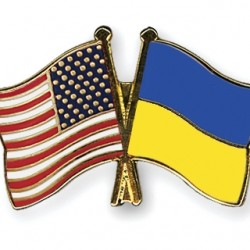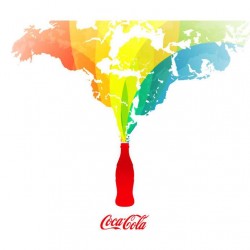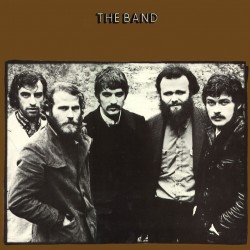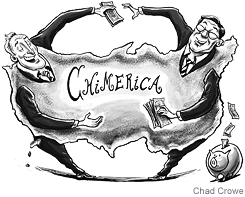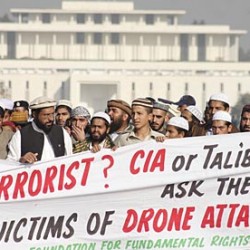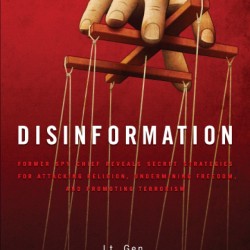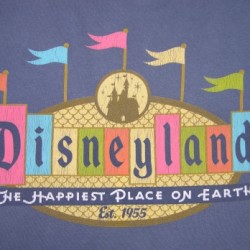THE FUNDAMENTALS OF SINGAPORE’S
FOREIGN POLICY: THEN AND NOW
by Lee Kuan Yew
Speech at the Rajaratnam Lecture, April, 2009
Independence was thrust upon Singapore. The fundamentals of our foreign policy were forged during those vulnerable early years. They remain relevant because small countries have little power to alter the region, let alone the world. A small country must seek a maximum number of friends, while maintaining the freedom to be itself as a sovereign and independent nation. Both parts of the equation – a maximum number of friends and freedom to be ourselves – are equally important and inter-related.
Friendship, in international relations, is not a function of goodwill or personal affection. We must make ourselves relevant so that other countries have an interest in our continued survival and prosperity as a sovereign and independent nation. Singapore cannot take its relevance for granted. Small countries perform no vital or irreplaceable functions in the international system. Singapore has to continually reconstruct itself and keep its relevance to the world and to create political and economic space. This is the economic imperative for Singapore.
To achieve this, we have to be different from others in our neighbourhood and have a competitive edge. Because we have been able to do so, Singapore has risen over our geographical and resource constraints, and has been accepted as a serious player in regional and international fora. We earn our living by attracting foreign investments and producing goods and services useful to the world. Hence, we must always have the ability to be ourselves and be different from others in the wider region of East and South Asia. Had we disported ourselves like our better endowed neighbours, we would have failed. For Singapore, unlike others in our neighbourhood, is of no intrinsic interest to any developed country when they can invest in our larger neighbours endowed with more land, labour and natural resources.
At the same time, we must never delude ourselves that we are a part of the First World in Southeast Asia, a second and third world group of countries. Our region has its own special features. Singapore’s destiny would be very different if we were sited in Europe or North America. We cannot transplant our island elsewhere. Therefore, a recurrent issue for Singapore is how to differentiate ourselves from our neighbours in order to compete and survive, and also get along with them. This is a perennial foreign policy challenge.
The Changing International Environment
As the world changes, small countries have to swiftly adjust their policies and positions in a pragmatic and clinical manner. We have to live with the world as it is, not as we wish it should be. We must remain nimble to seize opportunities that come with changing circumstances, or to get out of harm’s way.
Let me outline the major changes in the international and regional environment since we became independent.
In 1965, the Cold War was at its height. The world was bipolar, divided into communist and non-communist blocs and a main fault line ran through Southeast Asia. The Vietnam War had been raging on for several years. That year, President Lyndon B Johnson upped the ante by bombing North Vietnam. All the non-communist countries of Southeast Asia faced serious internal threats from communist insurgencies or subversive movements supported by a China that was then in the throes of the launch of the Cultural Revolution.
All the non-communist countries of Southeast Asia were embroiled in disputes of varying intensity with one another. Singapore had just been “separated” from Malaysia and Indonesia was pursuing a policy of “konfrontasi” against Malaysia and Singapore. The Philippines claimed Sabah. Brunei with British help had suppressed an internal rebellion backed by Indonesia. There were also strong irredentist pressures on the borders between West Malaysia and Thailand, and between the Philippines and Indonesia. In these unpropitious circumstances, the Association of Southeast Asian Nations (ASEAN) was formed so that the non-communist states in Southeast Asia could contain and manage their differences to meet the greater threat from the communists.
The world has completely transformed. The Cold War is over after the Berlin Wall fell in 1989 and the Soviet Union imploded in 1991. Vietnam, Laos, Myanmar and Cambodia have joined ASEAN. The threat of mutual nuclear annihilation during the Cold War has gone.
But it is not the “end of history” that an American has written in the euphoria of triumphalism. The Cold War divided the world into two blocs for more than 40 years from the end of the Second World War. Two heavily armed nuclear blocs made it a dangerous world. Once this over-arching strategic discipline of the bipolar Cold War was dissolved, long submerged conflicts broke out in many parts of the world, but fortunately not in Southeast Asia.
With the collapse of the communist ideology of how society and the economy should be organised, all states joined the global wave of the free market.
Singapore has since 1965 plugged into the international economic grid. We welcomed Multi-National Companies (MNCs) to invest and manufacture in Singapore when the conventional wisdom was that MNCs exploit Third World countries. As an open economy, we took full advantage of globalisation.
East Asian countries had been leading the pack in this globalisation wave. They distinguished themselves from other Third World countries by single-minded emphasis on development. Japan was the earliest to plug itself into the global system. The Newly Industrialising Economies of Hong Kong, Republic of Korea, Singapore and Taiwan followed suit from the 1960s; then came the Southeast Asian ‘tigers’: Malaysia, Indonesia and Thailand. Vietnam reformed its economy in the 1990s.
The most dramatic transformations were China and India. China’s re-emergence in the world economy is the single most profound event of the 21st century. Two huge economies in China and India will reshape the world order before the end of the 21st century.
In the 1960s and 1970s, Singapore was berated in the Chinese media as a lackey of the American imperialists. The Malayan Communist Party (MCP) backed by China refused to recognise Singapore’s independence. This changed after Deng Xiaoping visited Singapore in November 1978. It marked a dramatic change in Singapore’s relations with China, and also China’s relations with Southeast Asia. Deng visited Bangkok and Kuala Lumpur before he arrived in Singapore. He personally saw that China had fallen behind these supposedly backward cities. Also, he concluded that China had to stop supporting insurgencies in Southeast Asia if he wanted ASEAN to support the resistance to Vietnam’s invasion of Cambodia.
In 1985, Dr Goh Keng Swee retired as Singapore’s Deputy Prime Minister. He was invited to be Economic Advisor to the State Council on the development of China’s coastal areas and tourism. China, a huge nation with an ancient history, was willing to learn from a tiny city-state.
Deng Xiaoping kept abreast of developments in Singapore and Southeast Asia. During a tour of southern China in February 1992, he said, “there is good social order in Singapore. They govern the place with discipline. We should draw from their experience, and do even better than them.” Vice Minister of Propaganda Xu Weicheng led a delegation to Singapore for 10 days that same year. Since then, exchanges between Singapore and China have grown. Hundreds of Chinese officials continue to be trained in Singapore. Since 1996, we have trained over 16,000 Chinese officials.
Rebalancing the world
The post-Cold War world is in a state of flux. All countries are transiting to a different global order.
The present unprecedented global economic crisis has resulted from a lack of checks on the many financial products called “derivatives”. There was insufficient oversight in international financial markets as layer upon layer of ever more complex financial instruments spun out of control. The world is suffering the consequences.
A mood for more regulations and control prevails in many economies. This could slide into protectionism. Protectionist measures to protect domestic employment will prolong the economic crisis with unpredictable geopolitical complications.
This crisis will hasten China’s growth vis-à-vis the US. It is growing at 8%; the US may suffer negative or low growth. China has proven itself to be pragmatic, resilient and adaptive. The Chinese have survived severe crises – the Great Leap Forward and the Cultural Revolution – few societies have been so stricken. These are reasons not to be pessimistic.
The relationship between the US and China has already become the most important geopolitical issue of this century. Both countries realise that they need to work with the other. Neither wants conflicts. Both have to reckon with internal pressures from serious problems of growing unemployment.
However, American resilience and creativity should never be underestimated.
As the dominant global power, preserving the status quo is in US interests. As a rising power, China will not acquiesce to a status quo status indefinitely. Competition is inevitable, but conflict is not.
The US and China will both come through the present economic crisis. China is closing in on the lead the US enjoys. Their relations will remain stable, provided the world does not slide into protectionism. Each has to accommodate the core interests of the other.
The world, including East Asia, is not yet “decoupled” from the US. Multi-polarity where different poles are approximately equal in strategic weight is unlikely to emerge because the “poles” are not equal. A global economic recovery is not possible unless the US recovers.
After the crisis, the US is most likely to remain at the top of every key index of national power for decades. It will remain the dominant global player for the next few decades. No major issue concerning international peace and stability can be resolved without US leadership, and no country or grouping can yet replace America as the dominant global power.
Europe can become an economic force. Because its members have not submerged their sovereign interests, the EU cannot be a global strategic actor. This crisis has shown how divergent the national interests of EU members are.
China, the EU, Russia, India will be independent players. China has made beachheads in the Middle East, Africa and Latin America. It will be a global player in another three to four decades. China’s present preoccupations are domestic, and its relationships with the countries of North East and South East Asia.
Russia’s capabilities are limited. It wants to consolidate its influence in its “near abroad”. Japan will be distracted by domestic politics. India is an emerging power, but at present lacks a competitive industrial base. However, it is the dominant power in South Asia.
China will pull ahead of Europe, Japan, India and Russia. US-China relations are setting the framework for East Asia. In the latter 21st century, US-China relations will become the most important bilateral relationship in the world, like the US-USSR relationship during the Cold War.
The US needs support from its European, Japanese and other allies to deal with international issues. The West is less cohesive after the Cold War. On international issues, like climate change, conflicts in the Middle East, proliferation, terrorism, food and energy security, pandemics or promoting Third World development, the US is not assured of unanimous support.
The current financial and economic problems require a global rebalancing of consumption and savings: a change in economic relationships between the US and China. Both must change in their cultural habits and mindsets. The American consumers must spend within their means. The Chinese consumers must increase their domestic spending. This will be a difficult transition.
Globalisation cannot be reversed because the technologies that made globalisation inevitable cannot be uninvented. In fact, better and cheaper transportation and communications will further advance the forces of globalisation. Singapore has to embrace this reality and remain open to talent, capital, technology and immigrants to make up for our low birth rate (total fertility rate of 1.29) with around 35,000 babies each year.
Singapore’s Future
Singaporeans must always be prepared to maximise our opportunities and manage the challenges. In an era of increasing rapid and convenient transportation and communications, political leaders frequently meet each other at bilateral and multilateral summits; and they become comfortable to phone each other through secure lines. Ambassadors do not influence foreign policy so significantly. Sound foreign policy requires a prime minister and a foreign minister who are able to discern future trends in the international political, security and economic environment and position ourselves bilaterally or multilaterally to grasp the opportunities ahead of the others. Able foreign ministry officers and diplomats who give insightful recommendations based on dealing with their counterparts and assessments on the ground can greatly assist the Foreign Minister and his cabinet colleagues towards this end. But ultimately, it is the Prime Minister and other key ministers who decide on changes in policies. At face-to-face meetings over long hours they can sense each other’s thinking and leanings before their officials are privy to them. Hence, our foreign policy from 1965 was settled by the PM and his key ministers. A mediocre PM and cabinet will decline our standing with other countries and we will lose opportunities like the lead we enjoy in Free Trade Agreements or Comprehensive Economic Partnership Agreements with the US, Japan, China, India, South Korea, Australia and New Zealand, and our close relations with the oil states of the Gulf.
ASEAN is now more robust than in 1967. It has been an exception among Third World regional organisations. ASEAN has avoided being bogged down in post-colonial rivalries and tensions, and has focused on development.
Several ASEAN countries are in political transitions, working towards more sustainable and durable systems. Political circumstances will determine ASEAN’s pace of progress. Placed between the giants of China and India, ASEAN countries have to combine their markets to compete and be relevant as a region. There is no other choice. ASEAN is also playing a major role in shaping a wider architecture of cooperation in the Asia-Pacific.
Conclusions
Let me return to the complexities of Singapore’s relations with our neighbours. The events that led to our independence are receding into history. These different complexities are not the result of historical baggage, but of basic differences in political and social systems. Baggage is something we can discard. Political and social systems we cannot change so easily.
Singapore is a multi-racial meritocracy. Our neighbours organise their societies on the supremacy of the indigenous peoples, Bumiputras in Malaysia and Pribumis in Indonesia. Though our neighbours have accepted us as a sovereign and independent nation, they have a tendency to externalise towards us their internal anxieties and angst against their own minorities. This is unlikely to go away.
Time has worn down many of the sharper edges in our relations with our immediate neighbours. A habit of working together in ASEAN has also helped. Singapore is now more established, internationally and regionally. Forty years ago, many did not believe Singapore would survive, let alone prosper.
We have a strong economy, accumulated robust reserves, developed a civil service of integrity and ability, a mature and capable foreign policy team, and institutionalised our systems.
We have strategic relationships with the major powers. We have a credible defence capability. The SAF is an insurance in an uncertain world.
Each successor generation of Singaporeans must build on these assets and work out their solutions to new problems, seize new opportunities and avoid impending disasters in an ever changing world. The perennial challenge is to remain competitive. To be competitive, we must remain a cohesive, multi-racial, multi-religious nation based on meritocracy. We have to strengthen our national consciousness at a time when the forces of globalisation are deconstructing the very notion of nationhood.
All countries face this challenge. A country like America has over 200 years of history to bond its citizens. We have only 40 years. But so long as the succeeding generations of Singaporeans do not forget the fundamentals of our vulnerabilities, and not delude themselves that we can behave as if our neighbours are Europeans or North Americans, and remain alert, cohesive and realistic, Singapore will survive and prosper.
. . . . .
